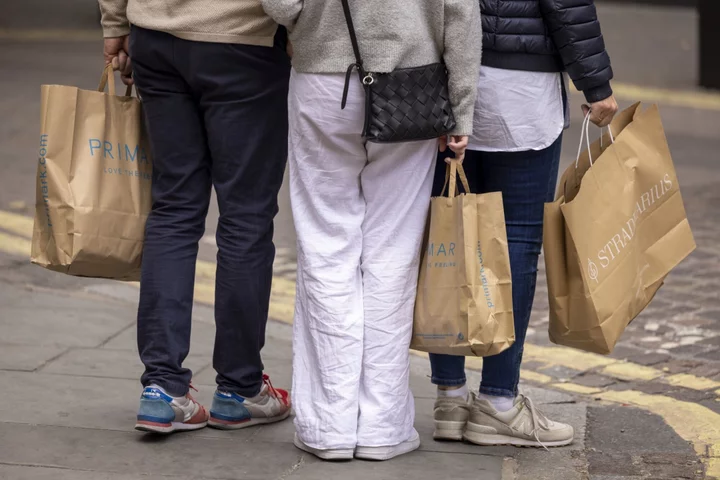Associated British Foods Plc raised its outlook for the full year as consumers battling a cost-of-living crisis manage to absorb higher prices for food, ingredients and clothing.
AB Foods said Monday it’s benefiting from strong sales in its grocery and ingredients business where it has increased prices to offset inflation, while its fashion chain Primark lured customers with summer styles and new stores. The overall group, which also owns a large sugar division, now expects profit to be moderately ahead of last year, up from previous flat guidance. The shares were largely flat in early trading in London.
The performance shows that consumers are largely accepting price rises despite the burden of inflation. Sales at Primark jumped 7% like-for-like in the three months to May 27 as the retailer attracted shoppers facing pressure on their personal finances with £8 ($10) mini dresses and £12 swimsuits.
Although Primark sales did slow slightly compared to previous quarters this was because the comparison with Covid lockdowns has fallen away, Eoin Tonge, AB Foods finance director said in a phone interview. Like for like sales rose 10% in the first half and slowed to 7% in the third quarter.
Primark struggled during Covid lockdowns because stores were forced to close for months and the business had no e-commerce site to fall back on. Since then it has relaunched its website, allowing shoppers to check stock availability to buy in store. The retailer is expanding a click-and-collect trial for its website to London this summer, focused on children’s products.
Last week, Next Plc raised its forecasts saying that consumers were spending more after receiving annual salary increases, but that the effect will diminish over time.
Primark’s sales figures are slightly better than analyst expectations, said James Grzinic at Jefferies in a note to clients, although investors may have been hoping for more given upbeat peer group reporting, for example from Next.
Read More: Next Raises Forecasts After Shoppers Get Pay Increases
Consumers are battling against ongoing high inflation in the UK with the consumer price index rising the same amount in May as the month before. The effect on shoppers is particularly pronounced in food retailing.
“The consumer has been resilient and held up pretty well,” said Tonge. “It’s a continuation of good trading across the business but particularly in food. Pricing actions from earlier in the year kicked in so we’ve seen growth.”
Supermarkets are pressuring food producers to cut prices as signs emerge that some commodity costs are starting to fall. UK supermarkets have pushed back against plans for voluntary price caps on groceries.
“There is a bit of moderation in inflation, but obviously it’s pretty significant inflation still in the system,” said Tonge, adding that labor inflation continues to be quite high and that will stick around for some time.
(Updates with finance director comments, context from fourth paragraph.)









